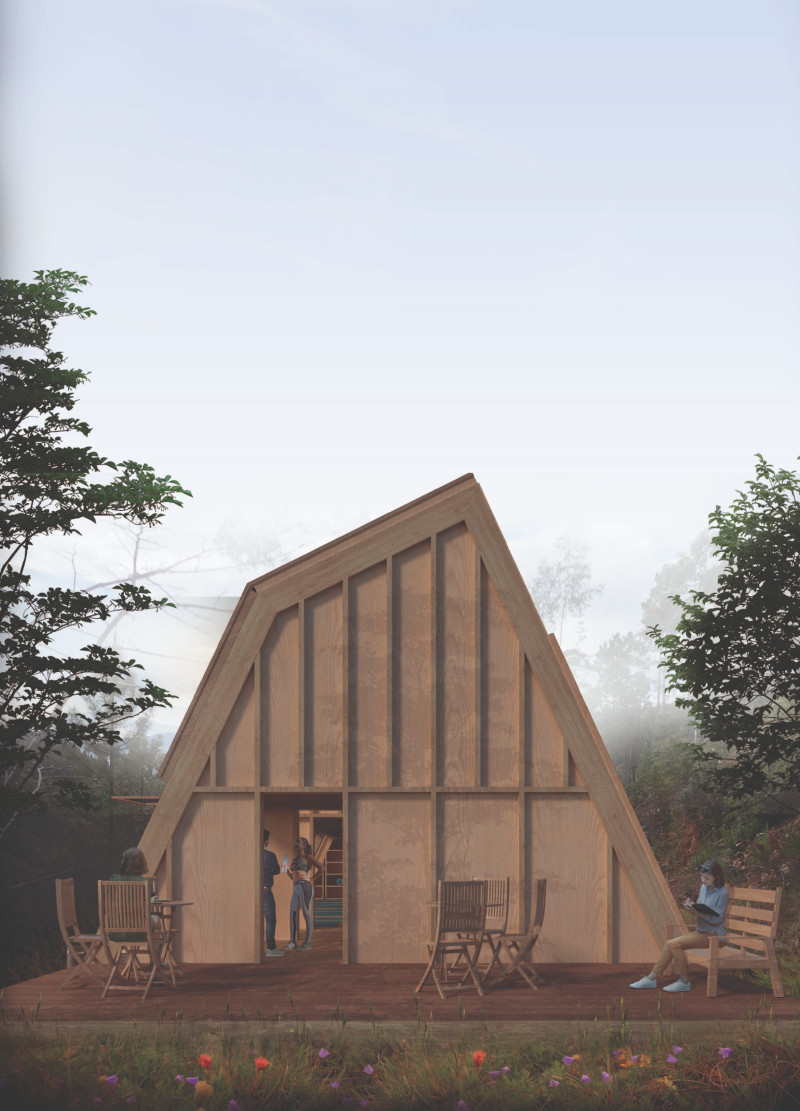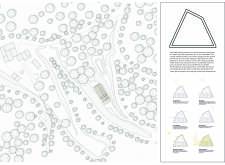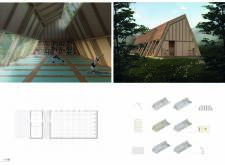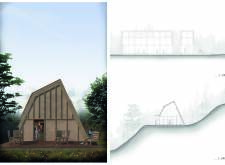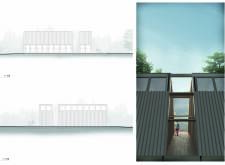5 key facts about this project
The Yoga Shala is designed as a tranquil space for yoga practice, set within a natural landscape that complements its purpose. The structure showcases a unique triangular shape that serves both functional and visual roles. This design reflects themes of stability and energy flow, connecting the building to its environment in a meaningful way.
Geometric Form and Energy Efficiency
The architectural concept centers on the triangle, a form recognized for its strength. The building features a broken triangular profile that steepens toward the sun, designed to capture as much solar energy as possible. This configuration enhances energy efficiency by allowing for optimal placement of solar panels, demonstrating a commitment to sustainability.
Light and Ventilation Strategies
A careful arrangement of openings allows natural light to fill the interior while maintaining a balance with heat gain. The windows are thoughtfully placed to bring in soft sunlight, especially during warmer months, without overheating the space. Cross ventilation is achieved through windows positioned in opposing directions, ensuring that fresh air circulates throughout, which is important for occupant comfort.
Sustainable Water Management
The design incorporates an effective water management system, using the roof slopes to collect rainwater. This water is filtered and stored for reuse, showcasing a dedicated approach to resource conservation. The ability to manage rainfall in this way aligns with sustainable practices that help reduce the building’s environmental impact.
Materiality and Local Context
Local wood is used throughout the Yoga Shala, including timber beams and cork panels. This material choice reflects a commitment to sustainability and a connection to the local area. The use of vernacular construction methods allows the structure to harmonize with its surroundings and promotes a sense of place.
Light filters through the angled ceiling, illuminating the interior and reinforcing the space’s relationship with nature and the calming practice of yoga.


